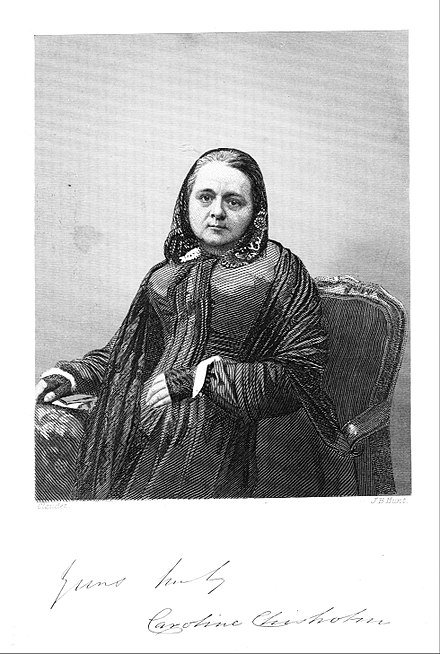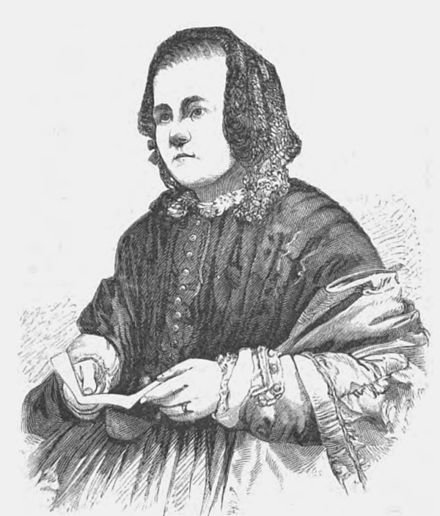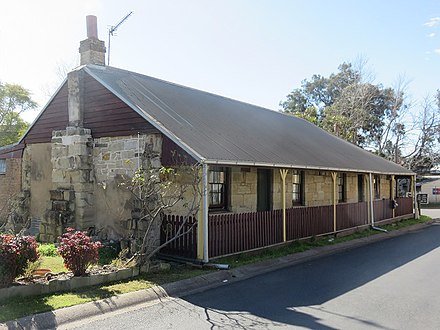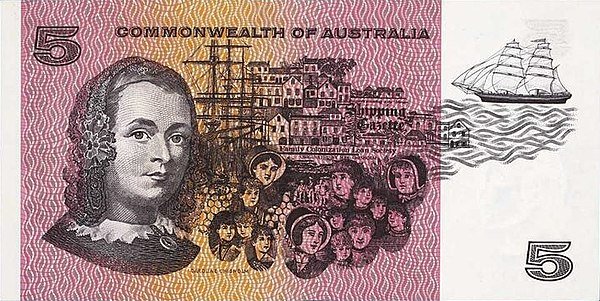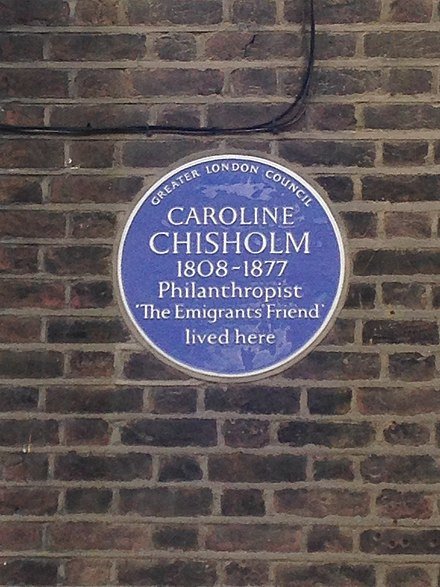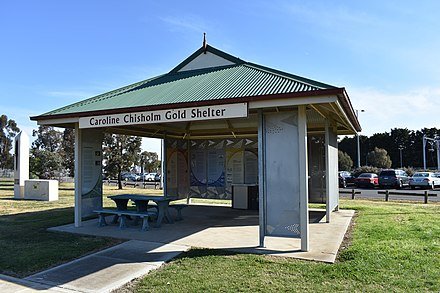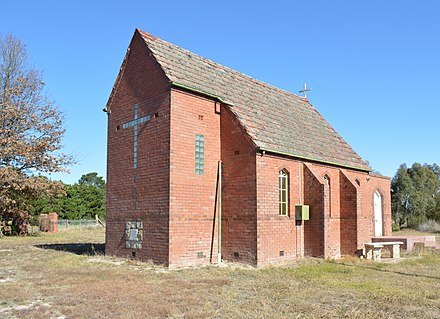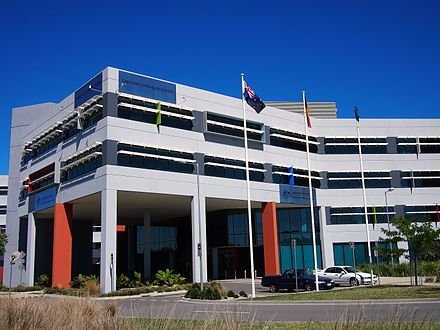British Heritage
Remember, Cherish, Learn.
beta
Caroline Chisholm
An Unforgettable Contributor to British Heritage.
Known for her selfless dedication to helping the less privileged, Caroline Chisholm's profound legacy is etched into the annals of British and Australian heritage. Her efforts, particularly in championing the cause of impoverished and vulnerable women and families, encapsulate her inimitable contribution to British heritage.
Caroline Chisholm, originally Caroline Jones, was born on 30 May 1808 in Northampton, England. Her father, William Jones, was a prosperous pig dealer and property owner. William Jones passed away when Caroline was six, leaving a considerable inheritance to his twelve children, including Caroline, the youngest.
At the age of 22, Caroline married Captain Archibald Chisholm, a Roman Catholic and an officer in the East India Company's Madras Army. Around this time, Caroline embraced her husband's faith and pledged to raise their children in the Catholic tradition.
Upon joining her husband in Madras, India, in 1834, Chisholm noticed the negative influence the soldiers had on young girls living in the barracks. In response, she established the Female School of Industry for the Daughters of European Soldiers. This school provided the girls with a practical education that included reading, writing, nursing, cooking, and housekeeping, thus equipping them with skills to make a decent living. The school's success eventually led to the admission of soldiers' wives, further broadening its impact.
In 1838, due to Captain Archibald Chisholm's ill health, the family relocated to Sydney, Australia, believing the climate would better suit his recovery. Here, Caroline noticed the plight of immigrants, particularly young women without any means of livelihood. Deeply moved, she began a significant humanitarian campaign to provide them with shelter and job placement. By 1840, Captain Chisholm had returned to India, leaving Caroline to continue her philanthropic work independently.
In Sydney, Caroline set up the first home for young women, which later expanded to help immigrant families and young men. Her efforts extended to rural areas, where she set up more homes, including the Caroline Chisholm Cottage in East Maitland, which catered to homeless immigrants seeking employment in the Hunter region.
During her seven years in Australia, Chisholm secured homes and jobs for over 11,000 people. Her efforts were carried out independently, free from political or religious affiliations. She raised funds for her humanitarian efforts through private subscription.
Upon her return to England in 1846, Chisholm and her husband published "Comfort for the Poor – Meat Three Times a Day," a pamphlet featuring immigrants' testimonials, encouraging potential immigrants to consider moving to Australia. Her efforts led to her giving evidence before two House of Lords select committees, where she advocated for family immigration.
In 1849, with the support of key figures like Lord Shaftesbury, Sir Sidney Herbert, and Wyndham Harding FRS, Chisholm founded the Family Colonisation Loan Society. The Society's aim was to lend potential immigrants half the cost of the fare to Australia, with the expectation that they would repay the loan two years after settling in Australia. This initiative led to an improvement in the conditions on passenger ships and helped over 3,000 people immigrate to Australia.
In 1866, due to deteriorating health, Caroline returned to England, where she passed away on 25 March 1877. She and her husband, who passed away later that year, are buried in the Billing Road Cemetery.
Caroline Chisholm's contributions, particularly in Australia, resonate in the hearts of many even today. Her tireless advocacy for the rights and welfare of immigrants and her humanitarian spirit made her an enduring figure in British and Australian heritage. Recognized in the calendar of saints of the Church of England and being considered for sainthood in the Catholic Church, Caroline Chisholm remains an exemplary figure of empathy, selflessness, and humanitarian leadership. Her legacy continues to inspire and reminds us of the impact one person can make in the lives of many.
Early Life and Education
Caroline Chisholm, originally Caroline Jones, was born on 30 May 1808 in Northampton, England. Her father, William Jones, was a prosperous pig dealer and property owner. William Jones passed away when Caroline was six, leaving a considerable inheritance to his twelve children, including Caroline, the youngest.
At the age of 22, Caroline married Captain Archibald Chisholm, a Roman Catholic and an officer in the East India Company's Madras Army. Around this time, Caroline embraced her husband's faith and pledged to raise their children in the Catholic tradition.
Philanthropic Endeavors in India
Upon joining her husband in Madras, India, in 1834, Chisholm noticed the negative influence the soldiers had on young girls living in the barracks. In response, she established the Female School of Industry for the Daughters of European Soldiers. This school provided the girls with a practical education that included reading, writing, nursing, cooking, and housekeeping, thus equipping them with skills to make a decent living. The school's success eventually led to the admission of soldiers' wives, further broadening its impact.
Humanitarian Work in Australia
In 1838, due to Captain Archibald Chisholm's ill health, the family relocated to Sydney, Australia, believing the climate would better suit his recovery. Here, Caroline noticed the plight of immigrants, particularly young women without any means of livelihood. Deeply moved, she began a significant humanitarian campaign to provide them with shelter and job placement. By 1840, Captain Chisholm had returned to India, leaving Caroline to continue her philanthropic work independently.
In Sydney, Caroline set up the first home for young women, which later expanded to help immigrant families and young men. Her efforts extended to rural areas, where she set up more homes, including the Caroline Chisholm Cottage in East Maitland, which catered to homeless immigrants seeking employment in the Hunter region.
During her seven years in Australia, Chisholm secured homes and jobs for over 11,000 people. Her efforts were carried out independently, free from political or religious affiliations. She raised funds for her humanitarian efforts through private subscription.
Activism in England
Upon her return to England in 1846, Chisholm and her husband published "Comfort for the Poor – Meat Three Times a Day," a pamphlet featuring immigrants' testimonials, encouraging potential immigrants to consider moving to Australia. Her efforts led to her giving evidence before two House of Lords select committees, where she advocated for family immigration.
In 1849, with the support of key figures like Lord Shaftesbury, Sir Sidney Herbert, and Wyndham Harding FRS, Chisholm founded the Family Colonisation Loan Society. The Society's aim was to lend potential immigrants half the cost of the fare to Australia, with the expectation that they would repay the loan two years after settling in Australia. This initiative led to an improvement in the conditions on passenger ships and helped over 3,000 people immigrate to Australia.
Final Years and Legacy
In 1866, due to deteriorating health, Caroline returned to England, where she passed away on 25 March 1877. She and her husband, who passed away later that year, are buried in the Billing Road Cemetery.
Caroline Chisholm's contributions, particularly in Australia, resonate in the hearts of many even today. Her tireless advocacy for the rights and welfare of immigrants and her humanitarian spirit made her an enduring figure in British and Australian heritage. Recognized in the calendar of saints of the Church of England and being considered for sainthood in the Catholic Church, Caroline Chisholm remains an exemplary figure of empathy, selflessness, and humanitarian leadership. Her legacy continues to inspire and reminds us of the impact one person can make in the lives of many.
- Caroline Chisholmen.wikipedia.org
